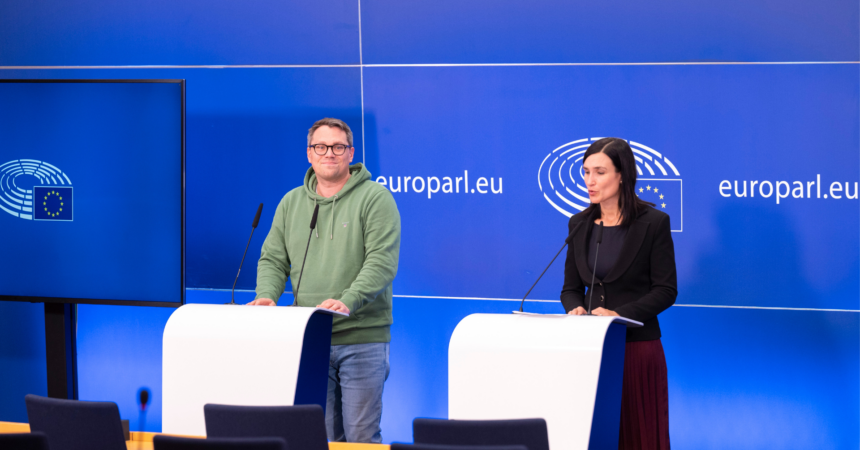The European Parliament and member states have reached a deal on the Anti-SLAPP (Strategic Lawsuits Against Public Participation) directive to defend critical voices, including journalists, media organisations, activists, academics, artists, and researchers.
The main points secured in the deal, aiming to protect individuals and organisations against unfounded and abusive legal proceedings, particularly in cross-border cases, were presented on Thursday in a press conference by rapporteur Tiemo Wölken (S&D, Germany).
SLAPPs are a form of harassment used primarily against journalists and human rights defenders to prevent or penalise speaking up on issues of public interest. Their use has increased over the past decade both in the EU and globally.
Earlier in the year, the Council of the European Union adopted a common position (general approach) on the Anti-SLAPP Directive that had severely watered down some of the key safeguards in a move that journalists, press freedom organisations, the Commission, and MEPs all criticised.
In their negotiations, MEPs have now ensured that cases will be considered cross-border unless both parties are domiciled in the same country as the court, and the case is relevant only to one member state.
The directive also includes measures to ensure early dismissal of manifestly unfounded claims, with SLAPP initiators required to prove the validity of their case.
Courts will also have the power to impose dissuasive penalties on claimants and oblige them to pay all the costs of proceedings, including the defendant’s legal representation.
The rules also provide support measures for SLAPP victims, including compensation for inflicted damage and access to comprehensive information on support measures such as financial assistance, legal aid, and psychological support.
The directive also addresses EU protection against non-EU SLAPPs, with EU countries ensuring that third-country judgments in unfounded or abusive proceedings against individuals or institutions domiciled in their territory will not be recognised.
Addressing the press conference, Wölken said, “Despite strong divergences between the council and the parliament’s position, we managed to ensure that this directive goes beyond mere procedural aspects and duly reflects the broader impact and context of these cases.”
🇪🇺Thank you @VeraJourova @woelken @DavidCasaMEP & others for your incessant dedication to the anti-#SLAPP Initiative. We welcome the news that the agreement has been reached.
We await the final text for detailed analysis and comments. #STOPSLAPPs https://t.co/Pp4SMpOLSX— The CASE (@CASECoalition) November 30, 2023
He also added that” despite the Council’s attempts to significantly weaken the Commission’s proposals, Parliament secured a deal that includes a definition of cross-border cases, accelerated treatment for key procedural safeguards such as early dismissal and provisions on financial security, as well as flanking support measures on assistance, data collection and the compensation of costs.”
Maltese MEP David Casa, who has campaigned for anti-SLAPP legislation for five years, wrote, “With the agreement reached during the night on Daphne’s Law, we’ve never been so close to this law coming into force. We want to ensure that this law honours Daphne’s name, and we continue to increase our efforts to protect journalists from threats.”
Several press freedom organisations have also welcomed the news of a formal agreement between member states and the European parliament.
The Coalition against SLAPPs in Europe (CASE) welcomed the news, as did European Parliament President Roberta Metsola, who in 2021 was co-rapporteur with Wölken.
The legislation will become effective 20 days after publication in the Official Journal after formal approval by the plenary and member states.
Member states must implement the legislation into national law within two years.















Deo grazias